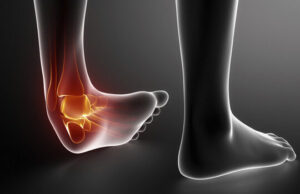Comprehensive Soft Tissue Injury Treatment After A Car Accident
After a car accident, it’s common to focus on broken bones or external injuries—but often, the most unsettling and long-lasting damage occurs within your soft tissues. Muscles, ligaments, and tendons are especially susceptible to sudden trauma, yet their injuries are not always immediately visible.
At Specialty Care Clinics, we specialize in diagnosing and treating soft tissue injuries including whiplash, sprains, strains, and muscle tears. If you’re experiencing pain, tightness, or unexplained discomfort, understanding these injuries and how our team treats them can help you achieve a smoother, more complete recovery.

1. What Constitutes a Soft Tissue Injury?
Soft tissue injuries are damage to the body’s connective elements—specifically:
- Whiplash: Neck injury common after rear-end collisions caused by sudden forward-backward jolting.
- Sprains: Injury to ligaments—tissues that connect bones—frequently seen in wrists, ankles, or knees.
- Strains: Overstretching or tearing of muscles or tendons, especially in the back, shoulders, or legs.
- Muscle Tears: Severe form of strain where muscle fibers partially or fully tear, often resulting in acute, sharp pain.
Because these injuries rarely show up on X-rays, they can be easily missed—especially when symptoms surface hours or even days after the accident MSR Injury Doctors Blogs | Specialty Care Clinics.
2. Why Soft Tissue Injuries Often Go Undiagnosed
Adrenaline can mask injury symptoms in the hours following an accident. Then, up to 72 hours later, patients may notice:
- Persistent pain or tenderness
- Swelling and stiffness
- Reduced flexibility or movement
- Muscle tightness or spasms
- Headaches or discomfort during everyday activities MSR Injury Doctors Silverberry Physiotherapy
Because early pain may be subtle, it’s critical to monitor your condition closely—even when you “feel fine.”
3. The Risks of Ignoring Soft Tissue Injuries
Skipping evaluation or delaying treatment can lead to worsening outcomes:
- Formation of restrictive scar tissue
- Chronic inflammation and lingering pain
- Joint instability or reduced mobility
- Long-term posture issues or re-injury Dont Get Hit Twice MSR Injury Doctors
Early diagnosis and guided intervention significantly reduce these risks—and encourage faster, fuller healing.
4. Modern Treatment Approach: Beyond RICE
Soft tissue injury care has evolved. While the traditional RICE method (Rest, Ice, Compression, Elevation) aimed to reduce swelling, recent research suggests a more active and nuanced protocol is more effective for healing Very well Health Wikipedia.
Advanced care protocols, including PEACE & LOVE, recommend:
- Protect and Educate during the initial phase
- Load Gradually and continue Mobility-promoting activities in the later stages
- Optimism, Vascularization, and Exercise as key to recovery Health Wikipedia
These holistic frameworks support natural healing while keeping the body active in a safe, controlled manner.
5. How Specialty Care Clinics Restores Function
We believe every injury—and every person’s recovery journey—is unique. Our comprehensive treatment process includes:
- In-depth Evaluation: Physical exams and imaging (MRI, ultrasound) to assess the severity of soft tissue damage Wikipedia.
- Customized Physical Therapy: Progressive exercises to restore mobility, reduce stiffness, and strengthen affected regions.
- Manual Therapies: Techniques like soft tissue mobilization and Active Release Technique (ART) to break up adhesions and restore function Very well Health.
- Rehabilitation & Strength Training: From gentle stretches to targeted strength exercises addressing whiplash, strains, or muscle tears.
Our multidisciplinary team continually adapts your care plan based on your progress, ensuring efficient—yet safe—movement toward full recovery.
6. Your Roadmap to Recovery at Specialty Care Clinics
- Early Assessment – Identify soft tissue damage through comprehensive exams.
- Targeted Intervention – Move beyond passive rest with a guided, active plan.
- Progressive Rehabilitation – Begin safe exercise and strength-building.
- Monitor & Maintain – Ongoing care to prevent relapse and restore function.
Because we’re dedicated specialists in auto injury care, our clinic offers expert support every step of the way.
Conclusion
Soft tissue injuries—while often invisible—can profoundly affect your life after a car accident. From whiplash and strains to full muscle tears, these injuries deserve attention, expertise, and a personalized recovery strategy.
At Specialty Care Clinics, we’re committed to helping you reclaim comfort and mobility through modern, evidence-based treatments. If you’re dealing with post-accident pain or stiffness, don’t settle for subpar recovery—get the expert help you deserve.
Ready To Start Your Recovery Journey?
- Visit: Specialty Care Clinics – Soft Tissue Injury Treatment
- Call: (972) 865-4454
- Get professional, compassionate soft tissue injury care near you, so you can move pain-free again.
Frequently Asked Questions (FAQs)
1. What Makes Muscle Tear Different From A Strain?
A muscle tear is a more serious form of strain—where muscle fibers are partially or fully torn—leading to intense pain, swelling, and weakness.
2. When Should I Start Moving After A Soft Tissue Injury?
Rest initially, but transition to gentle movement and guided exercises as soon as pain allows—this promotes blood flow and aids healing.
3. How Can ART Therapy Help My Recovery?
Active Release Technique (ART) helps alleviate muscle adhesions and tightness, improving mobility and reducing pain more effectively than passive therapies alone Very well Health.
4. Why Are Soft Tissue Injuries Often Overlooked?
Symptoms often delay onset and imaging might appear “normal.” That’s why careful clinical evaluation is essential to identify and treat the hidden damage.
5. How Long Does It Take to Recover?
Recovery varies by injury severity:
- Whiplash or mild strains: 2–6 weeks
- Moderate strains/sprains: 6–12 weeks
- Muscle tears: Several months with proper rehabilitation
Prompt, early treatment can significantly speed up your recovery.
